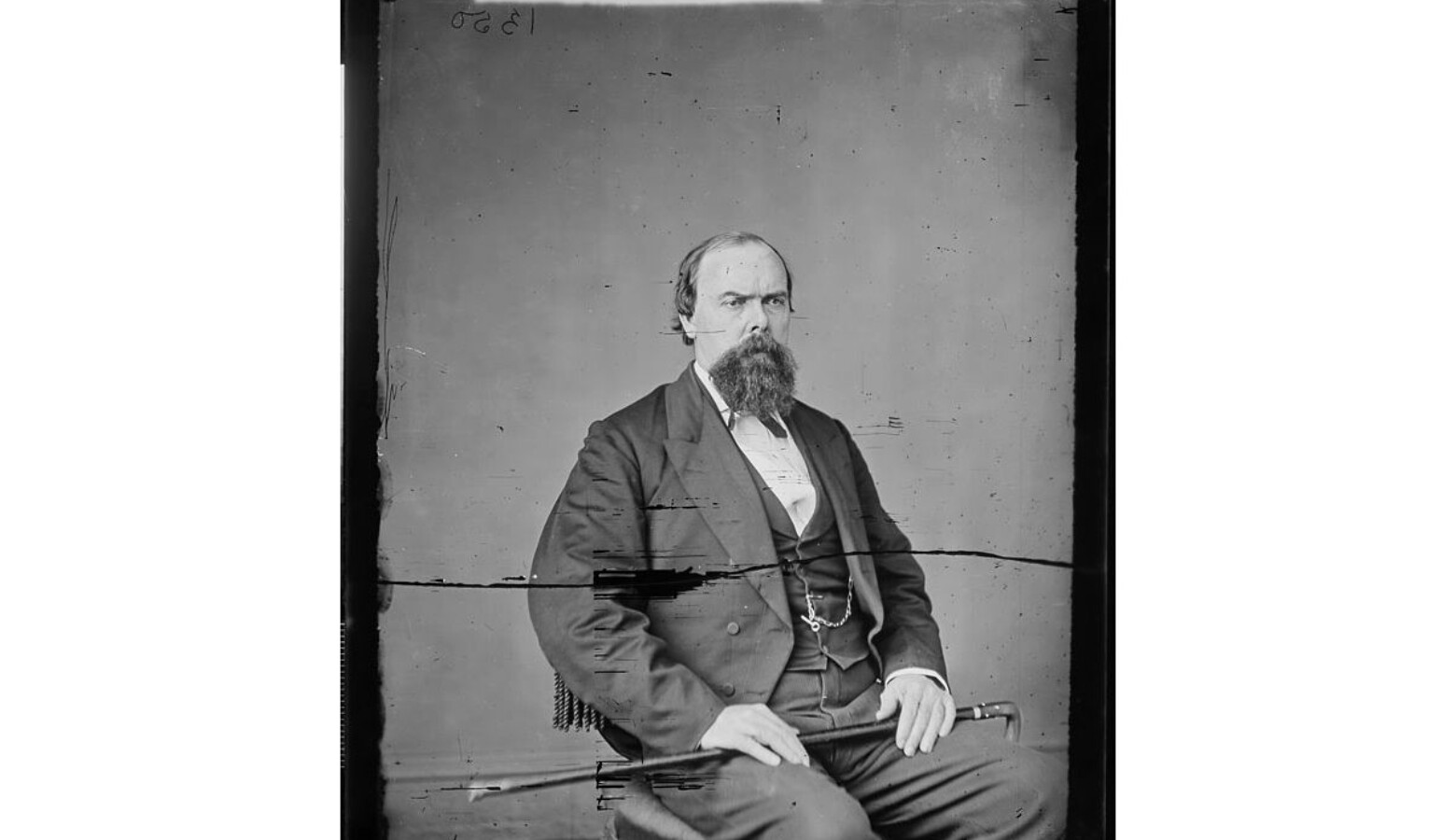It’s Not The First Time Indiana’s Governor And Legislature Have Been At Odds Like This

On Monday, the Republican-dominated General Assembly overrode Gov. Eric Holcomb’s veto of a law that strips emergency powers from local health officials.
Last month, Holcomb sued the General Assembly after it overrode his veto of a law that strips some emergency powers from the governor himself.
This isn’t the first time the governor and state legislature have been at odds like this, though.
According to University of Indianapolis history professor A. James Fuller, what we’re seeing now pales in comparison to what happened during the Civil War, when Oliver Morton was governor.
“It was a big conflict,” Fuller said. “And it was constitutional, about who would have authority in Indiana government.”
Oliver Morton, a Republican, became Indiana governor in January 1861. Abraham Lincoln hadn’t yet assumed office, but Morton knew the nation was barreling toward Civil War. He began his term preparing for war, organizing a state militia, finding guns and ammunition to fight. But in doing so, he greatly expanded the role of governor.
“A ‘weak governor state’ is what (Indiana) was known as,” Fuller said. “The legislature had the power.”
At the same time, the federal government was also centralizing power in its mission to keep the Union intact. President Lincoln levied the first federal income tax during his first months as president and came out with a preliminary Emancipation Proclamation a year later, both radical uses of federal power at the time.
“War fatigue is setting in. And in the ’62 elections, the Democrats swept Indiana,” Fuller said. “They took control of both houses of the legislature. They won most of the congressional seats in Indiana. And so, this set the stage then in January of ’63, when the legislative session opened, for the conflict.”
The Democrats were concerned about the expansion of executive power they were seeing; some were “Copperheads” who wanted a peace settlement with the Confederacy. They planned to pass a “Militia Act” that would take control of the war effort away from Morton and give it to the General Assembly. But Morton and the Republicans came up with a counter of their own.
“This is a phenomenon in Indiana politics – whenever the minority party in the legislature doesn’t have the votes (and) cannot stop a piece of legislation that the majority is pushing, they can ‘bolt the session’ and try to deny a quorum,” Fuller said. “And so that’s what the Republicans did.”
Without a quorum, Democrats were unable to pass the Militia Act by session’s end. But that also meant an appropriations bill didn’t pass – there was no state budget for the next two years. Morton would have to call a special session to pass the budget, but the Militia Act would also pass then.
“What Morton did instead is (he) just simply refused to call them back into session,” Fuller said. “They called him the ‘state dictator.’ I call it in my biography a ‘period of one-man rule.’ He ran it all out of his office.”
Morton borrowed money from Republican-controlled county governments, private banks and even the War Department. He bought a safe and had it hoisted into his second-floor office in the Statehouse; one of his secretaries became the “Minister of Finance.”
“It’s pretty crazy,” Fuller said. “You have it in a few places. Indiana and Illinois are examples where you have the Democrats win those majorities and then try to stop the governor.”
While the current conflict isn’t nearly as heated as the one 150 years ago, Fuller says it’s interesting that the fight now is among members of the same party – but they’re still arguing over the same issue of executive power.
“I think, in some ways, this is a legacy of Oliver Morton,” he said. “That struggle that we continue to have in Indiana, and I think we still will have going forward: How much power belongs in which branch of the government, and what are the limits of that power?”


